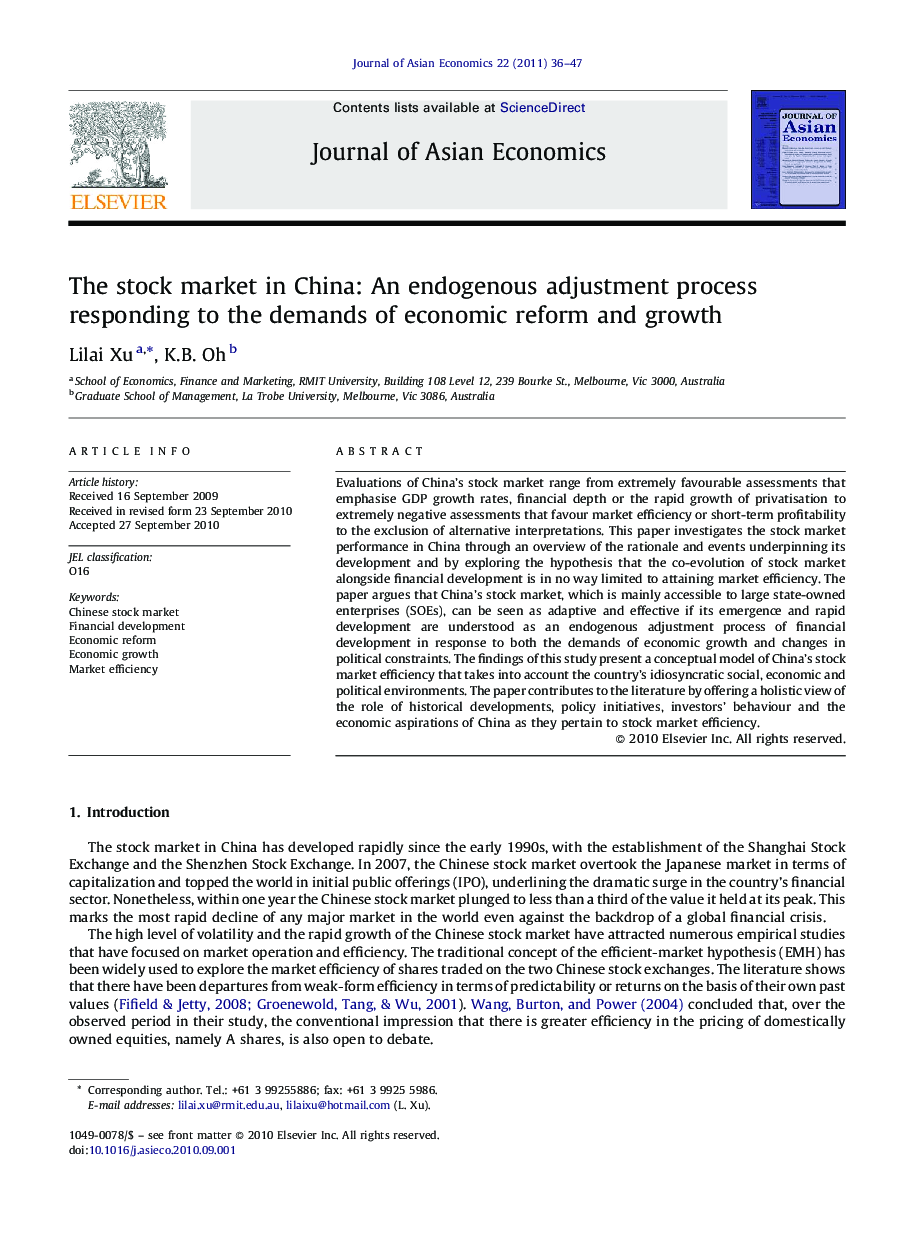| Article ID | Journal | Published Year | Pages | File Type |
|---|---|---|---|---|
| 5087583 | Journal of Asian Economics | 2011 | 12 Pages |
Evaluations of China's stock market range from extremely favourable assessments that emphasise GDP growth rates, financial depth or the rapid growth of privatisation to extremely negative assessments that favour market efficiency or short-term profitability to the exclusion of alternative interpretations. This paper investigates the stock market performance in China through an overview of the rationale and events underpinning its development and by exploring the hypothesis that the co-evolution of stock market alongside financial development is in no way limited to attaining market efficiency. The paper argues that China's stock market, which is mainly accessible to large state-owned enterprises (SOEs), can be seen as adaptive and effective if its emergence and rapid development are understood as an endogenous adjustment process of financial development in response to both the demands of economic growth and changes in political constraints. The findings of this study present a conceptual model of China's stock market efficiency that takes into account the country's idiosyncratic social, economic and political environments. The paper contributes to the literature by offering a holistic view of the role of historical developments, policy initiatives, investors' behaviour and the economic aspirations of China as they pertain to stock market efficiency.
Research highlightsⶠChina's stock market is part of financial development, responding to the demand of economic reform and growth. ⶠThe market is adaptive if seen as an endogenous adjustment process of financial development. ⶠThe effectiveness of the market is at the expense of individual investors.
